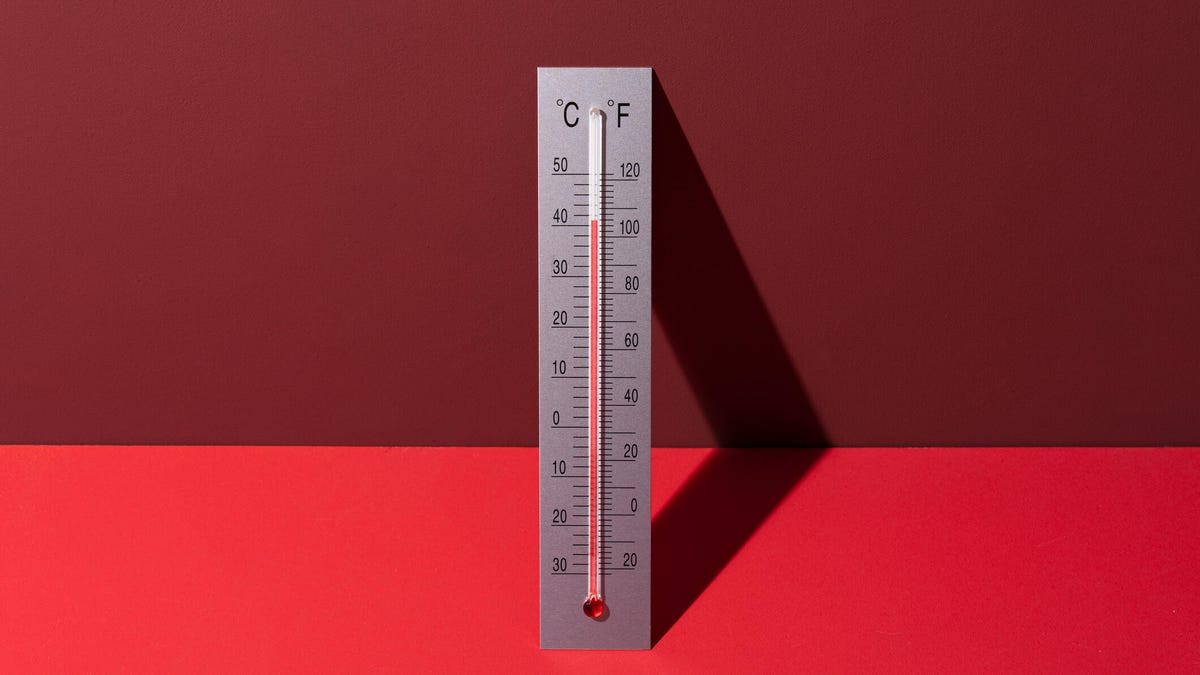 Why You Can Trust CNET
Why You Can Trust CNET How to Use the CDC's Heat and Health Tracker to Prepare for the Warm Weather
Monitoring a heat wave in your community, and the heat illness emergencies it can bring, is one way to stay safer in high temperatures.

Heat waves are considered a public health issue because of the heat illness risks they pose. In fact, heat is the country's No. 1 killer when it comes to weather events, according to the US Environmental Protection Agency.
When people are exposed to high temperatures for too long, and are without resources to cool themselves, illnesses like heat exhaustion and heatstroke can set in, requiring people suffering from them to seek immediate medical care. To break down heat as a public health issue, and to provide communities with more information during a heat wave, the US Centers for Disease Control and Prevention has been running a Heat and Health tracker, which clocks the number of emergency medical visits related to heat illness per 100,000 total visits.
Read more: Best Portable AC Units
You can use the tracker to search your county's ZIP code to see how well your community may fare in terms of social factors that increase heat-related risks, as well as for a visual on how daily temperatures have been changing year over year.
You can also see regional information on how heat-related emergency department visits compare to the total number of emergency visits.
Here's how to find more public health data to stay informed about your community's risk as we all track what could be another record-breakingly hot summer on Earth.
Read more: Heatstroke Symptoms, and 4 Steps to Take If Someone Near You Has It
Search for 'extreme heat' by ZIP code
The home page for the CDC's Heat and Health Tracker will show a map of the US and the number of heat-related emergency medical visits per 100,000 total visits. For example, Western communities in California, Nevada and Arizona had 1,197 heat-related emergency room visits per 100,000 total emergency room visits the week ending July 22.
To look at your town, specifically, find the ZIP code search in the top right corner of the page. You'll see a forecasted number of the expected "extreme heat" days for August, which the CDC defines as "a maximum temperature above the 95th percentile historical threshold." You'll also see a rating on your ZIP's "social vulnerability index." A "high" social vulnerability index would indicate more potentially negative effects and environmental stressors on human health.
From this ZIP code page, you can also see how daily temperatures this summer season (red dotted line) compare to historical averages (blue).
The CDC gets this data from the National Syndromic Surveillance Program -- a system for public health officials that's meant to catch health events and disease outbreaks early.
Read more: Window Air Conditioner Buying Guide: What to Know Before Buying a New Unit This Summer
Staying informed helps you prepare for, and potentially avoid, health risks
While it may be helpful for health centers and hospitals to look for a potential influx of patients needing emergency care as a result of the heat, having more information about heat and heat-related illnesses also may help people get a better handle on their individual risk. People with certain medical conditions, older adults and young children are among the most vulnerable to heat illness and should be given extra care and spend more time indoors or in cool areas during heat waves.
Read more: Best Prescription Sunglasses
For more information on staying safe in the heat, check out these tips for wearing cooling clothes, how to keep your pets safe in high temperatures and how to manage your mental health during a heat wave.
Read more: Surviving a Heart Attack in Hot Weather: Expert Advice to Save a Life

